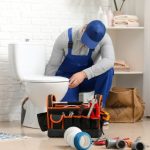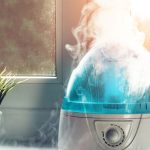Energy and HVAC Optimization
Let’s talk about 30-40% of your electricity bill. That’s how much it costs the average homeowner or commercial building owner to provide proper heating, ventilating, and air-conditioning (HVAC). A sound HVAC system is key to maintaining a comfortable, healthy interior environment. Through the years, many owners have asked me for a strategy to reduce their cost of energy and HVAC. They don’t want to sacrifice the interior environmental conditions but want a point-by-point plan to follow. The interesting thing that often happens is that energy bills are lowered substantially, and the HVAC system performance is improved. This is a standard function of any mechanical engineer specializing in energy and HVAC.

The information on this page will help homeowners, building owners, and building operators make informed decisions about existing HVAC systems or future upgrades.
- Load Reduction
- HVAC Systems
- Control Systems
- Operation and Maintenance
Load Reduction
The first step to achieving energy and HVAC system optimization is load reduction. This step usually consists of a long-range plan which itemizes the actions to be taken based on the best return on investment. Reducing your building load allows the existing HVAC system to operate more efficiently. If a new system or systems are being considered, it will be more cost-effective to design for the reduced load than the existing one. A few common load reduction strategies include:
- Tighten the building shell and add additional insulation. Adding insulation in existing buildings may not be achievable in some instances, so more consideration should be aimed at the exterior shell, especially windows and doors.
- Installing energy-efficient windows. This is a big item on some buildings that still have single-pane windows. The installation of double-pane windows with a thermal break is a great return on investment. Make sure they are ENERGY STAR-qualified windows. Tinting or Low-E coatings will even be better.
HVAC Systems
Knowing your system is the second step to achieving energy and HVAC system optimization. Your HVAC system is critical to your interior environment but also represents a large component of your utility expenses. While it is beyond the scope of this article to discuss every system, a few recommendations can be addressed. Every HVAC system component has increased in efficiency over the years. If your system is over 13 years old, it’s time to begin planning to upgrade to new equipment. Well-maintained residential systems have a life expectancy of about 15 years but seem to fail at the worse times. Have a replacement plan ready for the day your equipment fails.
Commercial systems vary, but the same lifetime can be expected if your building uses packaged equipment or split systems. For larger commercial and industrial applications, the HVAC system may be more complex and require an individual analysis by a mechanical engineer. As I said, HVAC systems vary, and no one-size-fits-all analysis works for larger systems. What all these systems have in common is they are usually fueled by electricity. Electricity costs money, so any efforts toward increased efficiency are a plus.
HVAC System Tips:
- Find a qualified consultant you trust. If you are a homeowner or small commercial building owner, find a good HVAC company or mechanic to evaluate and maintain your system. If you are a large commercial building owner, find a commercial HVAC company for normal maintenance and a good mechanical engineer for specific guidance. I do not recommend using a mechanical engineer employed by the HVAC Company; find a third-party engineer for unbiased information.
- Verify your HVAC system load. Homeowners should use ACCA’s Manual J calculation method, and all others should have a load conducted by a mechanical engineer. Commercial buildings have more requirements related to code conformance, minimum ventilation rates, etc., and are individual to each building.
- Load reduction-Read the information above.
- Homeowners and small commercial building owners should install programmable thermostats. Commercial building owners should install a Direct Digital Control (DDC) system. Investing in either of these will pay back more quickly than the cost. Read more below.
Operation and Maintenance
Operation and maintenance are the fourth and last steps to achieve energy and HVAC system optimization. The most efficient HVAC systems are well maintained. By following these tips, ensure reliability, efficiency, and long life for your HVAC system.
- Find a qualified consultant you trust. If you are a homeowner or small commercial building owner, find a good HVAC company or mechanic to evaluate and maintain your system. Find a commercial HVAC company for normal maintenance if you are a large commercial building owner. Make sure you record and document all servicing with dates, times, and names of the servicing person.
- Homeowners should always get a seasonal tune-up. The operation of your system will vary with the seasons of the year.
- Replace your air filters regularly. Don’t use anything less than a MERV 5 filter to ensure dust and fibers are removed. Clean filters will save fan energy.
- Coil Cleaning-This is always a big item overlooked by residential and commercial building owners. Condenser coils collect dirt and debris on their surfaces because they are outside. This makes the compressor work harder and results in a higher refrigerant temperature in your refrigeration system. Evaporators and heating coils collect dust and fibers that circulate inside your home or building. Clean them at least once a year

